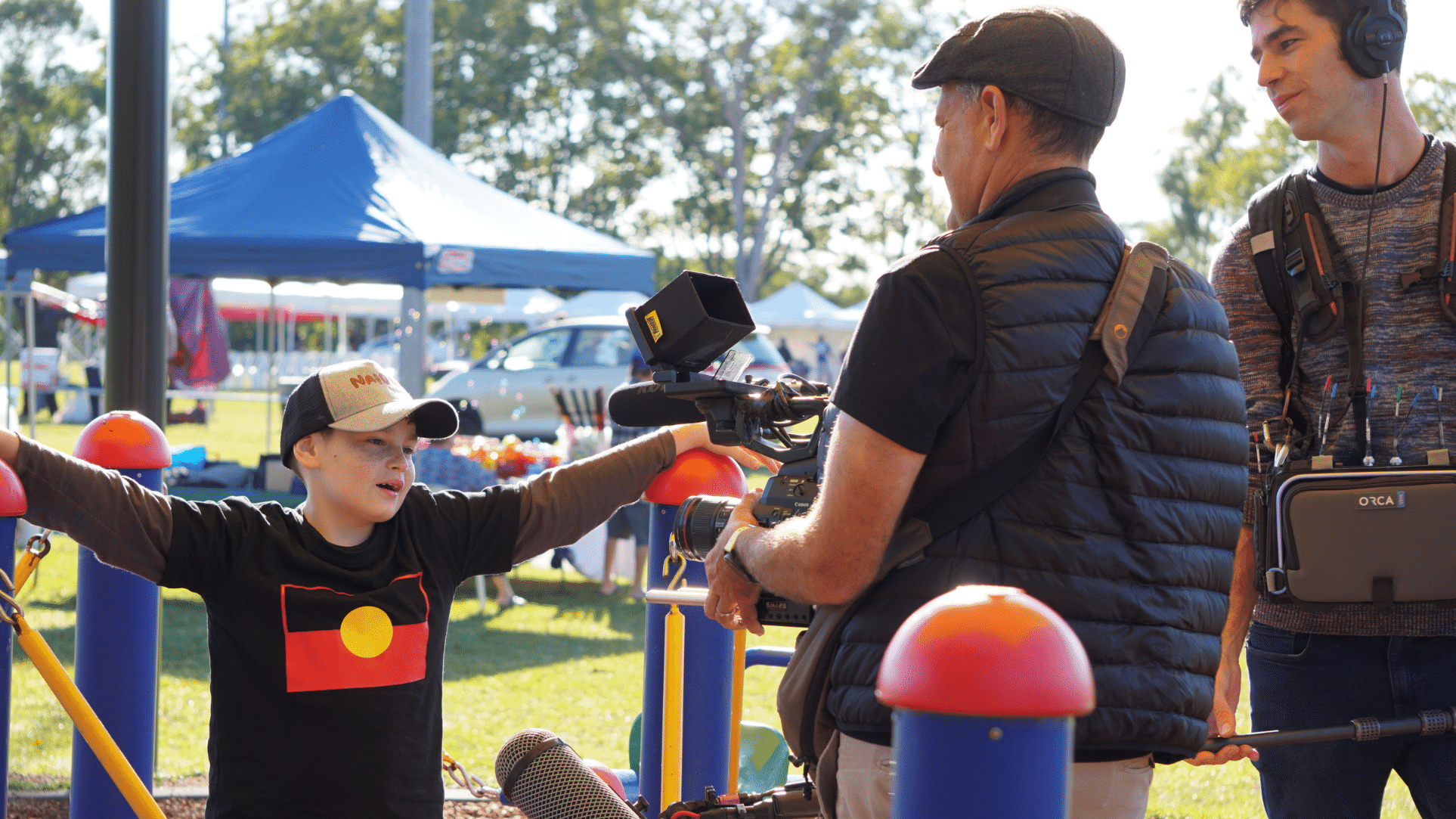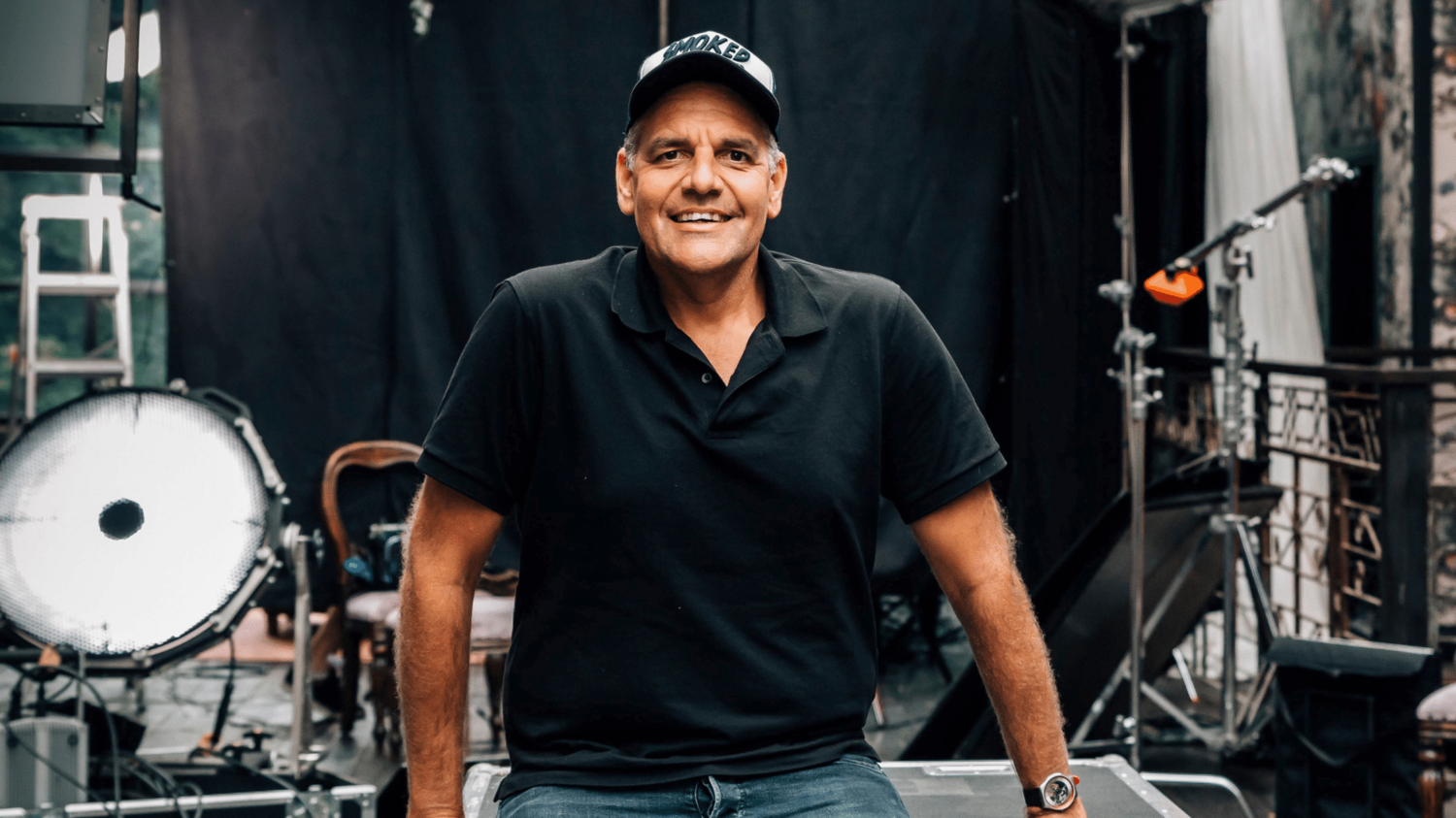Dean Gibson is a multi-award-winning Aboriginal (Guugu Yimithirr) filmmaker with over 15 years of experience in creating, writing, directing, editing and producing content. Based in Queensland, Dean is the Director of production company, Bacon Factory Films, his work across children’s television, documentaries and drama has screened on Australian broadcasters ABC, SBS and NITV.

Gibson’s 2014 production for Sesame Street, Five Kangaroos (starring popular Australian singer Jessica Mauboy), has been screened around the world. He co-wrote and co-produced the animated short Tjitji Lullaby for ABC Kids and created and co-directed series Handball Heroes for ABC3.
In the factual space, Dean co-produced, wrote and directed the hard-hitting documentary Incarceration Nation, which was awarded Most Outstanding Factual or Documentary Program at the 2022 TV WEEK Logie Awards (Australia’s television industry awards). As with his other documentaries My Family Matters: Ipswich and Wik vs Queensland, Incarceration Nation addresses issues faced by First Nations peoples in Australia.
Dean currently sits on the Board of Screen Queensland, the Griffith University Film School Advisory Board, Queensland Theatre and the Essential Screen Skills Industry Advisory Board. He is a passionate creative who believes in the power of stories for change.
How did you get started in the industry? Can you specify any particular “breakthrough moments” that launched your career?
I would have to say that my first short films gave me a taste for the industry. I probably didn’t know what I was truly getting into and felt thrown into the deep end with those films — but it taught me to swim. The greatest breakthrough for me wasn’t so much a project, it was more about recognising that great work comes from listening to, and respecting, the people around you on projects. Of course, not everything said is genius, but I would be careless not to allow years of experience to influence my career. But, if we want to talk projects, Wik vs Queensland was my first feature documentary. It told me that I had the ability and craft to create and hold audiences over longer periods. That gave me the confidence that I still feel today in every other project.

Helen Morrison (Bent3Land Productions) and Dean Gibson (Bacon Factory Films) with their 2022 TV WEEK Logie Award
You are a producer, director, writer and editor. How, and in what order, did you develop this broad skillset? How does it shape your workflow and aesthetic as a practitioner and collaborator?
I think when I started Bacon Factory Films, I had to take a crash course in producing and business management. In many ways, when I started my business, I had a stronger level of film craft. Understanding finances, taxation and business responsibilities really pushed and tested me — still does today. On my big projects, I still collaborate closer with collaborator Helen Morrison from Bent3Land Productions, where she does all the heavy lifting in producing and business, allowing me to spend more time and energy on the screen and development. But as a small business, there are still times when I need to find it within myself to do whatever it takes.
You are the Managing Director of your own production company Bacon Factory Films. Tell us about the screen stories you like to tell.
My career as an Aboriginal filmmaker will always influence my works. It allows me to tell and share unique stories to our people and to the world. I feel there is an opportunity to share stories that get people thinking bigger and more broadly about the issues that challenge us — be it in social justice or injustice. But in saying that, we’re beginning to get more and more traction in the kids’ space and it’s enjoyable to create stories for children that take them on a journey.
What are your favourite aspects of the day-to-day process of creating a production?
There are two clear things that I love the most about being in production — development and acing an interview. I love developing ideas, pushing and growing them in directions to see if it can work. I love thinking big to allow the story to shine. I love going down rabbit holes in development and seeing what you can find. Sometimes it can be gold, sometimes it can be nothing. But the process of slowing your mind and honing research skills to run free is so appealing. Beyond that, acing an interview gives me the feeling of truly connecting with someone and allowing them to trust me and share whatever is in their heart. It gives me a sense that I’ve done my background work and that I really am focused on them and their story!

You were appointed to the Screen Queensland Board in 2020. What does that enable you to do and/or influence, from a broader industry perspective, in both the local and international production in Queensland and Australia?
Being on the Board of Screen Queensland has been an eye-opening experience, particularly looking beyond the everyday grind of production and small business. It has been insightful to step back and get an understanding of the bigger picture. Within that, I hope to give perspective when asked upon or feel the need. My influence as an Aboriginal filmmaker brings a different perspective and history to the boardroom of which I can see genuine interest and understanding. My first term was sadly dominated by responding to COVID-19 so moving forward, I hope to see greater local production and opportunities for First Nations stories and industry capacity to grow within Queensland, which can be addressed at board level.

What are your views generally about opportunities available in the screen industry for Aboriginal people and Torres Strait Islander people, on-screen and behind-the-scenes? What does the future look like, in your view
“I think the future is looking good for First Nations filmmakers and production companies. There’s clearly a strong domestic appetite for our stories which should hopefully unlock more opportunities. I still think we need to increase that middle tier of professional development.”
We have a strong top tier of professionals and many at the entry-level. The key in my eyes is giving people sustainable careers to progress into that middle ground and find regular work and projects. It’s slowly happening with initiatives like SBS/NITV’s Curious Australia, for which I executive produced three episodes.
What are some important things for productions to consider, to help increase these opportunities and engage meaningfully with Aboriginal and Torres Strait Islander communities?
I think the biggest thing that productions can do is engage First Nations people as much as possible — it gives an authentic voice to story. Above that, listen. Understand the history, understand the circumstances and understand the fact that many people are starting from a different start line than you. Do genuine consultation that allows their voices to be heard and understood. By doing this, your projects will only get deeper, richer and stronger!

